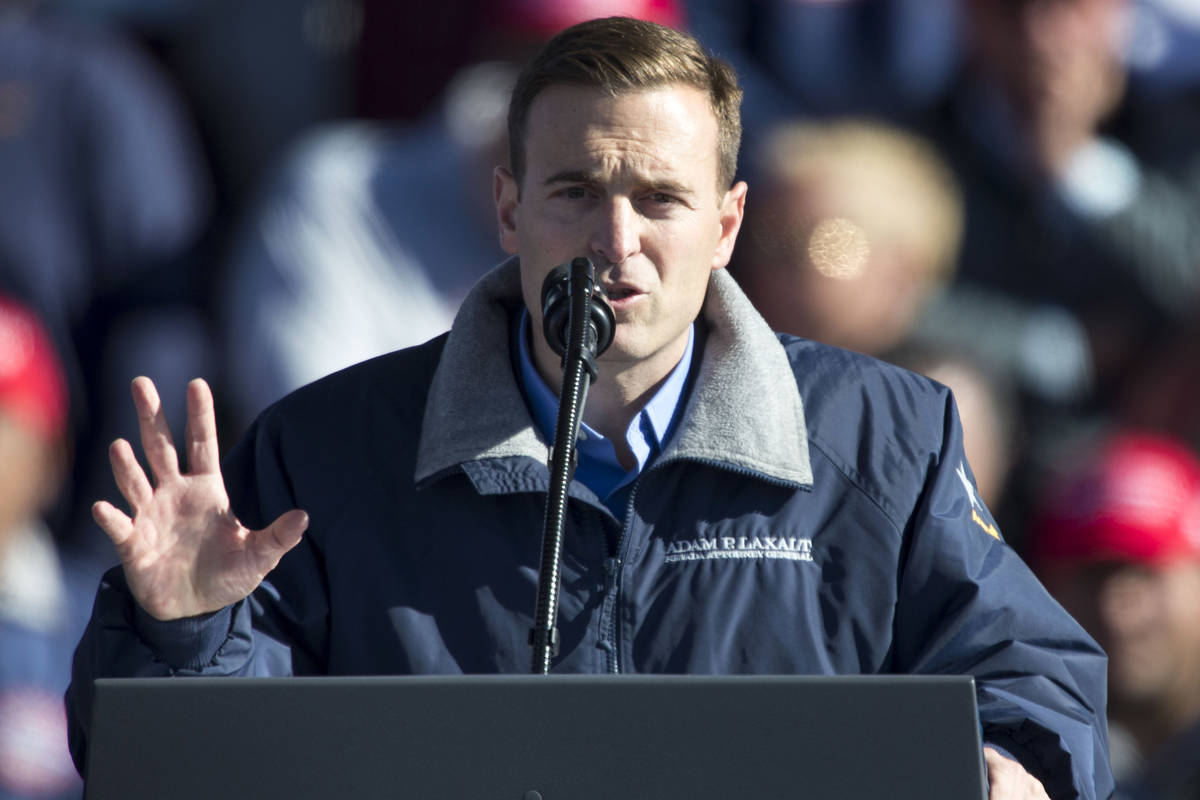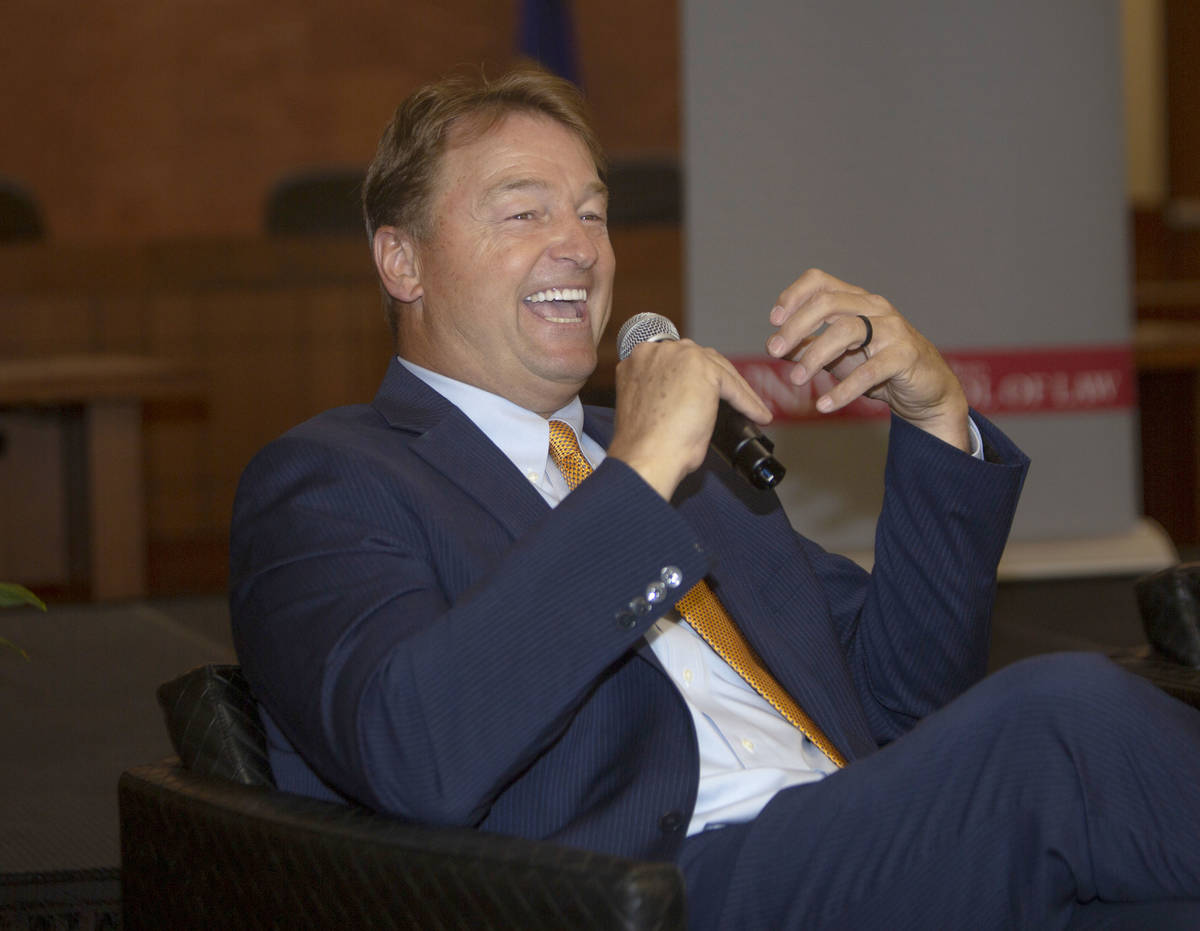STEVE SEBELIUS: Fighting myths about Nevada’s elections
Milton once asked “who ever knew Truth put to the worse, in a free and open encounter.” But it was Jonathan Swift who wrote “Falsehood flies, and the Truth comes limping after it.”
Truth has been taking a beating lately, especially when it comes to Nevada’s election laws, as modified by the recent passage of Assembly Bill 4 in the most recent special session.
President Donald Trump has attacked the law as promoting fraud, and his re-election campaign has even filed a lawsuit to invalidate parts of the legislation.
Many of the claims put forth by the president and his supporters in Nevada, however, are untrue, prompting the office of Secretary of State Barbara Cegavske to push back against the widely distributed myths.
That’s somewhat ironic: Cegavske, a Republican, wasn’t consulted by legislative Democrats when they wrote AB4, didn’t support the measure when it came before the Legislature and even requested emergency regulations to implement one of its provisions rejected by Gov. Steve Sisolak.
But she’s still striving to run a secure election and correct misinformation about the new law.
Ex-U.S. Sen. Dean Heller recently claimed that a provision that allows people to collect and turn in other people’s ballots — Republicans call it “ballot harvesting” — would lead to some votes being discarded by Democrats. Challenged on that point by the Reno Gazette-Journal, Heller demanded, “show me the regulation that says you can’t do that.”
OK, senator: Check out Section 21(2)(c)(1)(2) and (3) of AB4, which makes it a felony to fail to return a mail ballot before Election Day. Section 40(5)(a)(b) and (c) repeats those prohibitions. It’s also in Section 44 and Section 53(1)(h), which prohibit altering, defacing, damaging or destroying a mail ballot.
Heller also claimed sending a mail ballot to every active registered voter in the state — as AB4 requires — will allow people to vote twice, once by mail and once in person at a polling site.
But the system in place would instantly and quickly detect double-voting, which is a felony. According to the secretary of state’s office, most incidents of double-voting are accidental and involve elderly people confused about the process. But intentional fraud can be prosecuted.
That brings us to former Attorney General Adam Laxalt, who wrote in a Review-Journal op-ed piece published Aug. 22 that the new law loosens the signature checking requirement.
Spoiler alert: It does not.
All voters are required to sign something when they vote. At an in-person polling location, it’s the electronic poll book; on the mail ballot, it’s the outside of the return envelope. Those signatures are then checked against the signature on file at the elections office. If they match, the vote is counted. If not, the vote is set aside until the voter can be contacted and verified.
AB4 does put into law what was common practice in elections offices around the state: Signatures are rejected if, in the opinion of two employees in the clerk’s office, they differ in “multiple, significant and obvious respects” from the signature on file.
It’s unclear why Laxalt would object to this rule, which is designed to ensure the integrity of the ballot, especially because if the signature doesn’t match, the county will require the voter to produce identification to prove his or her identity. That’s something Republicans usually support.
Laxalt also falsely claims the law allows for multiple ballots to be submitted in a single envelope with a single signature. But that ignores Section 25(2), which clearly states that “if two or more mail ballots are found folded together to present the appearance of a single ballot, they must be laid aside.” If ballot inspectors believe the ballots were sent in by a single person, they must be rejected, according to the law.
Laxalt also objects to the time allotted for counting mail-in ballots, not-so-slyly implying that new ballots will be “discovered” in the days following an especially close election. But the law clearly requires mail-in ballots to be postmarked on or before Election Day and gives local offices the additional time to process what’s expected to be a larger number of mail ballots.
Laxalt’s claim is akin to implying fraud when the results of early voting change on election night as additional Election Day votes are counted and uploaded to the system. That’s called counting ballots, not creating them.
False, speculative or easily disproved attacks on the integrity of elections do little to inspire confidence in Nevada’s voting system, and perhaps that’s the point. But no matter how many op-eds, campaign calls, tweets or Facebook posts promote misinformation, a battered, limping Truth eventually catches up.
Contact Steve Sebelius at SSebelius @reviewjournal.com or 702-383-0253. Follow @SteveSebelius on Twitter.


















